Eastman Innovation Center Dedicated on UT Campus
The two institutions will work toward a “green corridor” through sustainability partnership
A longstanding relationship between Eastman and the University of Tennessee, Knoxville, took a leap forward Thursday as leaders dedicated the Eastman Innovation Center on the UT campus and outlined joint initiatives that could have far-reaching economic and environmental impact.
“Connecting our faculty experts with industry leaders, supplying them with the resources and the collaborative environment they need to solve pressing global problems is what a modern land-grant university is meant to do,” said Chancellor Donde Plowman. “The discoveries made through this partnership with Eastman will positively impact communities across the United States and world.”
Plowman and Deborah Crawford, vice chancellor for research, joined Steve Crawford, Eastman executive vice president, technology and chief manufacturing, engineering, and sustainability officer, and Chris Killian, Eastman senior vice president and chief technology officer, in dedicating the new center. Eastman’s center is in the UT Business Incubator, which provides a central location for technology firms to collaborate with UT on research and economic development projects that can benefit Tennessee.
“Our two institutions have decades of shared history,” said Eastman’s Crawford. “Today is a significant new chapter in that history.”
Research Amplification
The center expands an existing research relationship, as the university has been a member of the Eastman Innovation Network of higher education partners since 2015. Eastman will maintain a consistent campus presence, with scientists rotating through its Knoxville space to focus on research proposals from UT research teams of faculty and students.
“Our relationship with Eastman leverages unique intellectual and infrastructure resources and future workforce development in these critical areas of national need,” said Dayakar Penumadu, Fred N. Peebles Professor and IAMM Chair of Excellence. “A dedicated facility that brings Eastman employees to UT’s campus with a constant presence will substantially increase future collaborations. It is a win-win for both organizations.”
UT and Eastman extended a master research agreement that continues the research partnership through 2026. In doing so, Eastman has committed to at least $1 million for funded research. Killian said that because UT has acumen in areas strategic to Eastman, it is likely that Eastman will exceed the $1 million in research funding by that time.
“We’re excited for the possibilities of the innovation center because UT’s well-known expertise in fields like neutron science and additive manufacturing,” Killian said. “Through our early funded research proposals, we’re already seeing potential innovation in our window films, Eastman Tritan™ copolyester, cellulose esters, and Eastman Tetrashield™ for can coatings. We expect significant mutual benefit. We’re committed to solving some of the world’s greatest problems through innovation, and collaboration between institutions like Eastman and UT will accelerate that work. In turn, UT students get the opportunity to work on projects with real-world impact.”
Sustainability Synergies
In the process of discussing that research partnership, senior leaders in Knoxville and Kingsport, Tennessee, expanded discussions of overlapping sustainability initiatives and goals.
“We see abundant opportunities—especially on climate and material circularity—where we can work together to make a meaningful impact not only for the university and Eastman, but also for the state and especially for the East Tennessee region,” UT’s Crawford said.
UT and Eastman collaborated on a recycling project in 2021 to show how plastic collected at UT football games can be processed by Eastman’s molecular recycling technologies and reborn in the form of reusable water bottles. Initiatives like this will continue at Neyland Stadium in 2022. This year marks the 30th anniversary of “Good Sports Always Give Back,” a UT recycling program of which Eastman is a founding partner.
Ongoing research collaborations between UT and Eastman focus on the development of next-generation structural and functional materials that are sustainable for use in a variety of applications including automotive manufacturing.
“Cars, trucks, and buses currently contribute approximately 16 percent of the world’s carbon dioxide emissions, leading to an increase in global temperatures and affecting climate,” said Penumadu. “A key strategy of reduced carbon footprint is to consider light-weight materials, such as fiber reinforced polymer composites, where both fiber and resin are made from natural materials or recycled materials from Eastman’s molecular recycling technologies, which process hard-to-recycle plastics an infinite number of times. These use-inspired research projects are rapidly developing innovative manufacturing and materials with university and industry collaborations right here in East Tennessee.”
Eastman’s Crawford summarized the wider impact of the UT–Eastman research collaboration, saying, “This is about mutual benefit, but it’s also about a greater purpose—serving the public good. Those ‘big ideas’ for renewables and circularity that we’re able to develop in the next few years can be applied across the region and the world.”
Photo Gallery
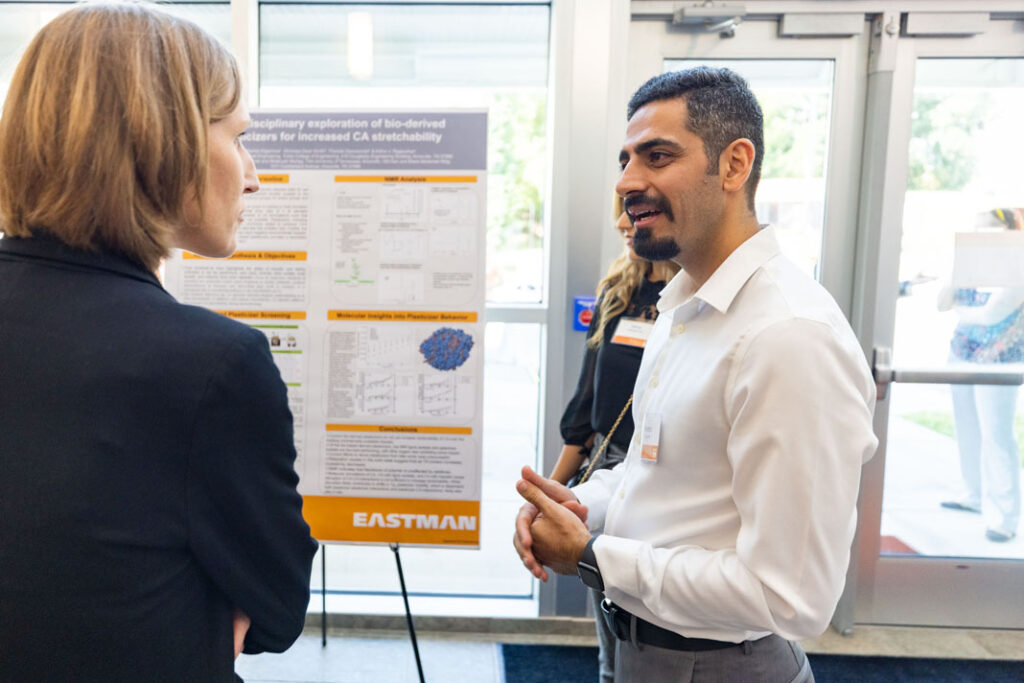
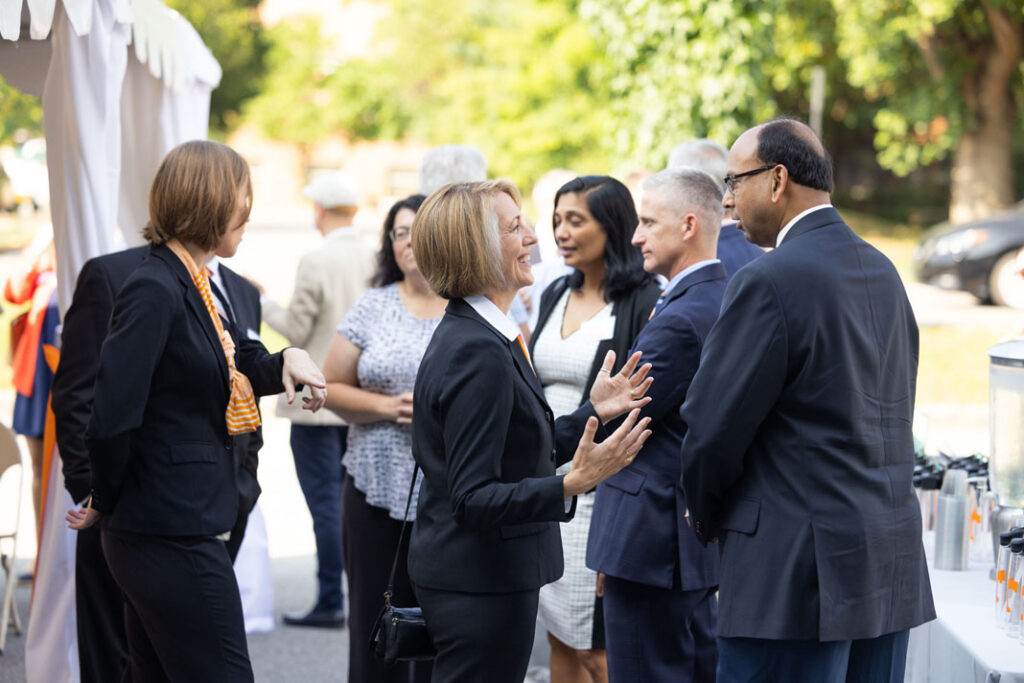
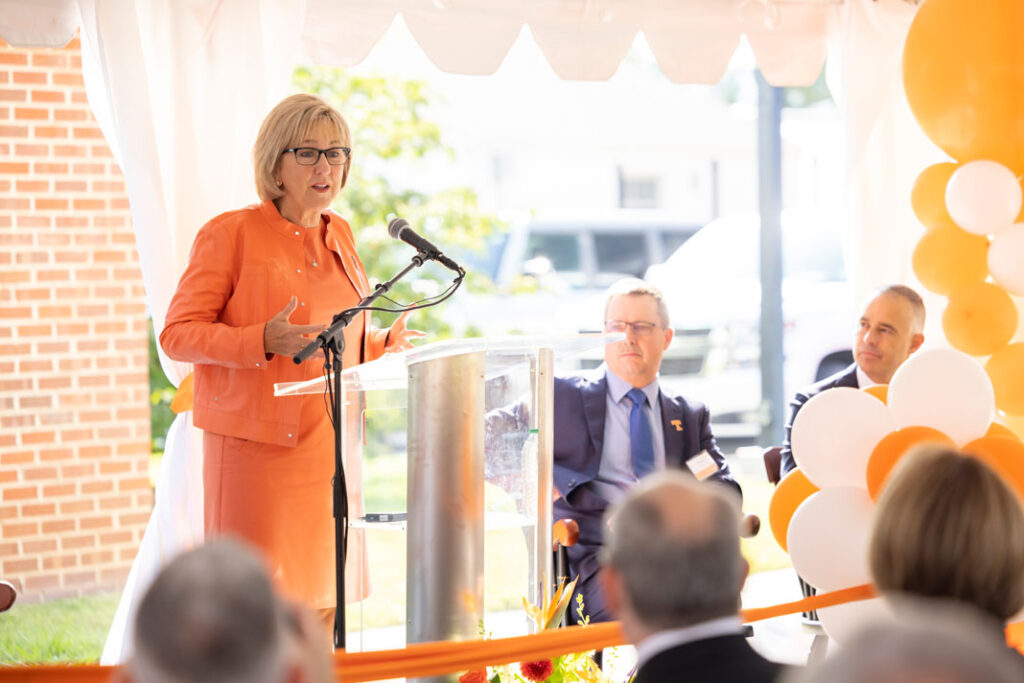
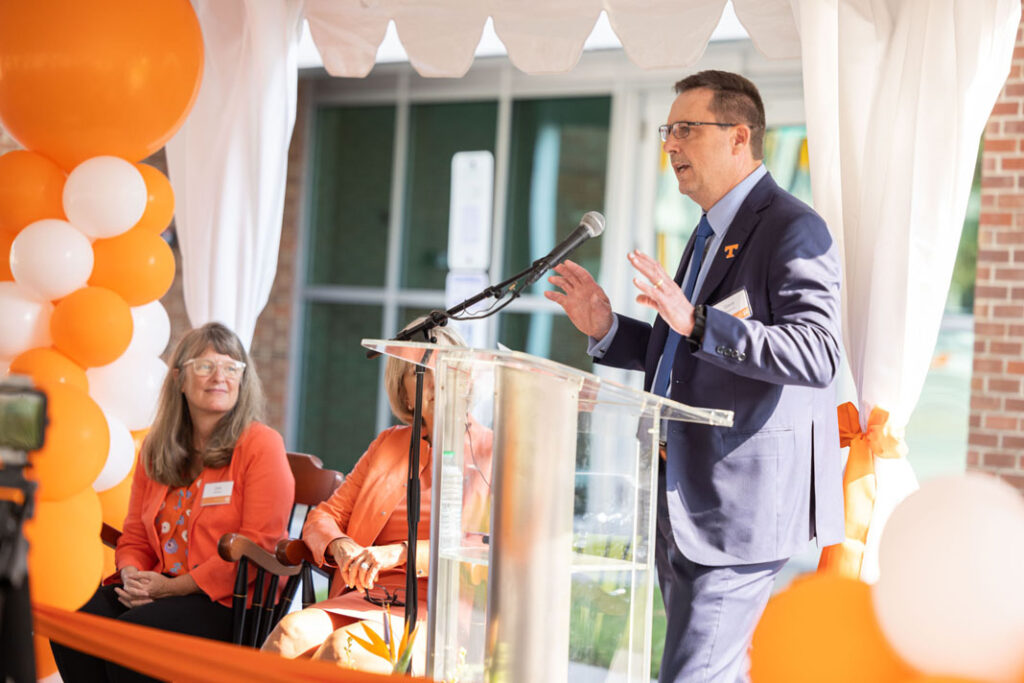
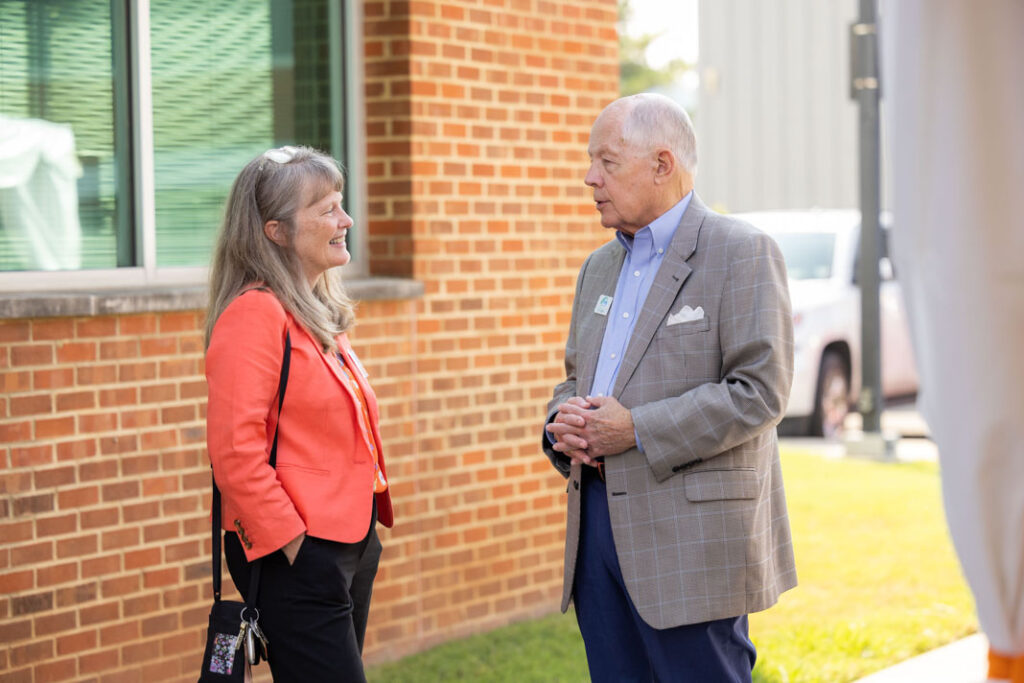
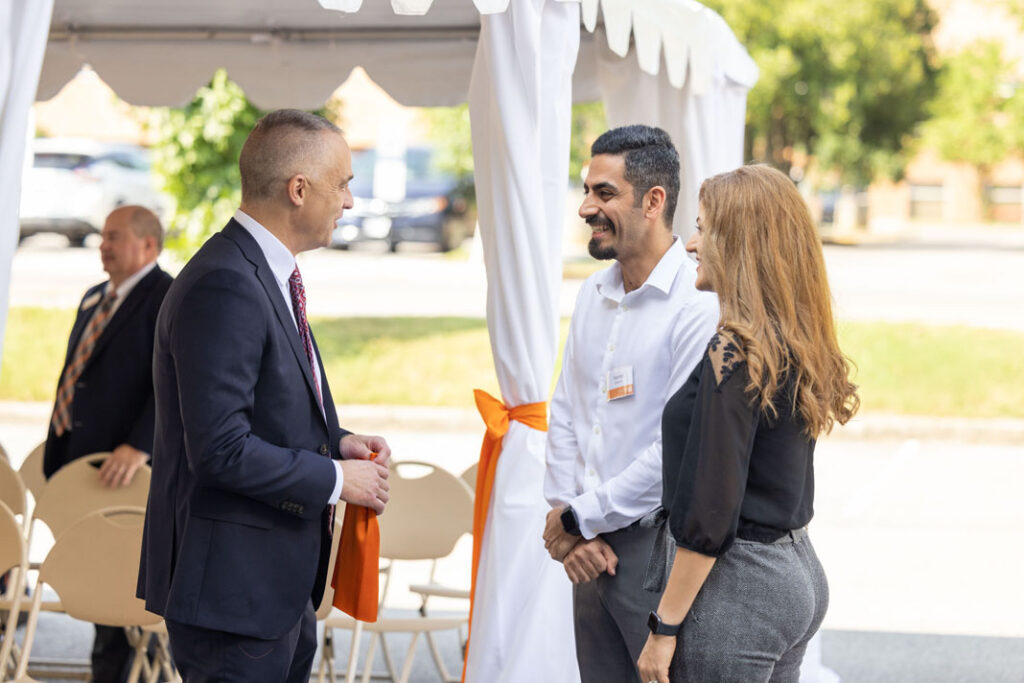
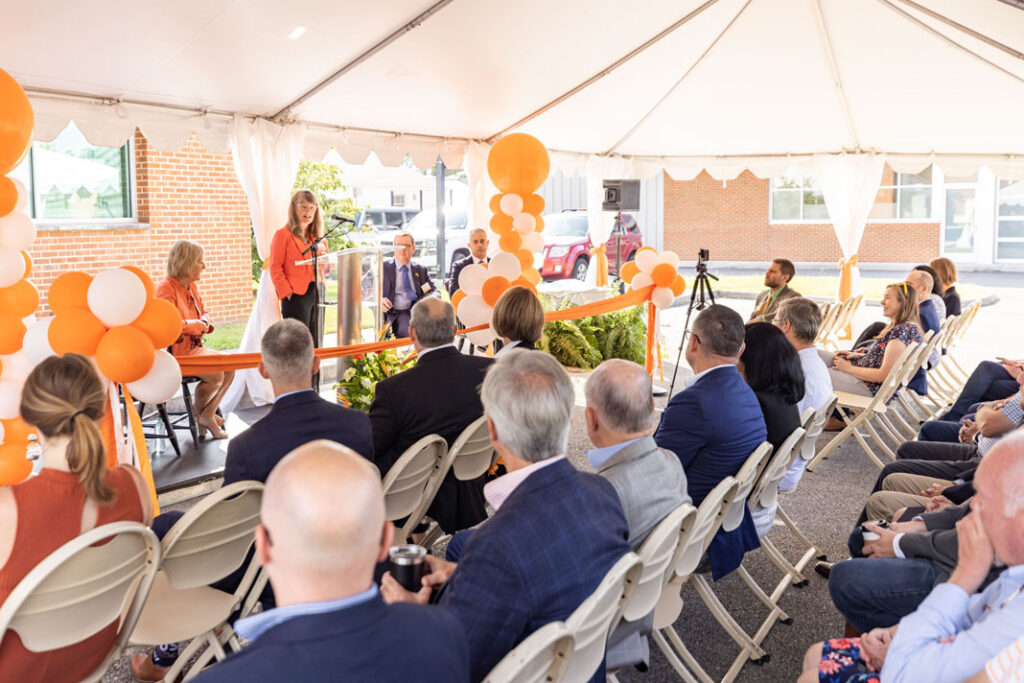
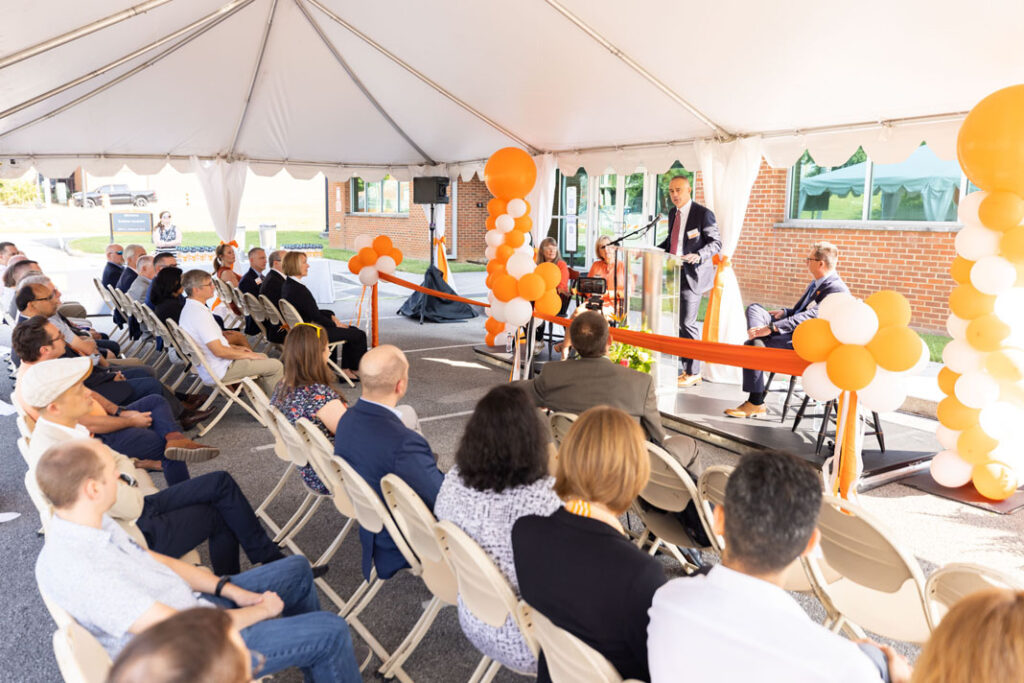
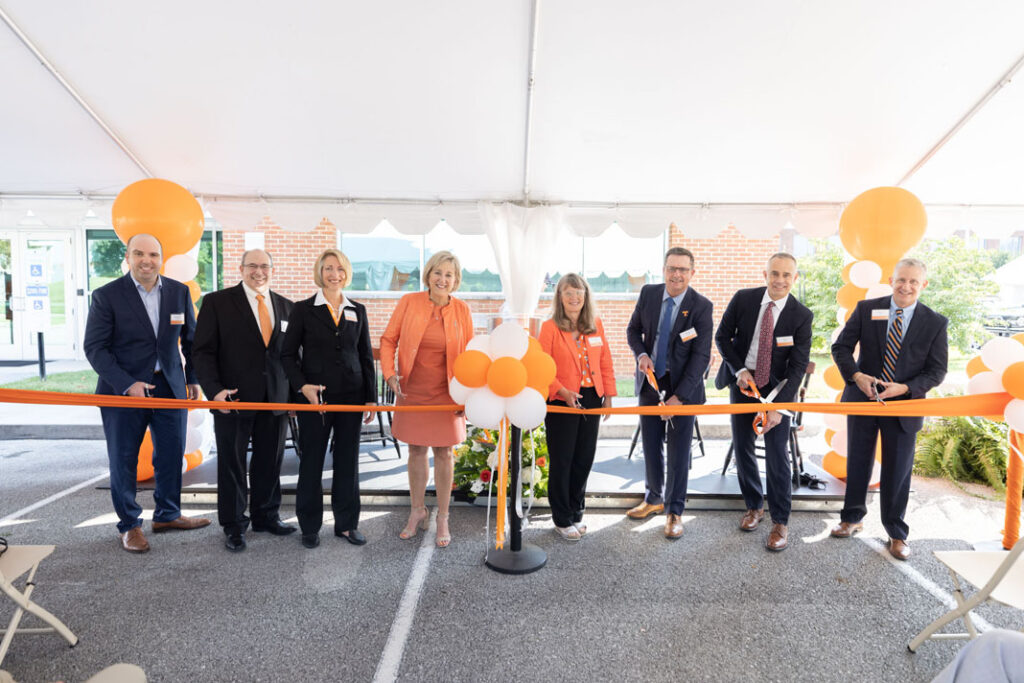
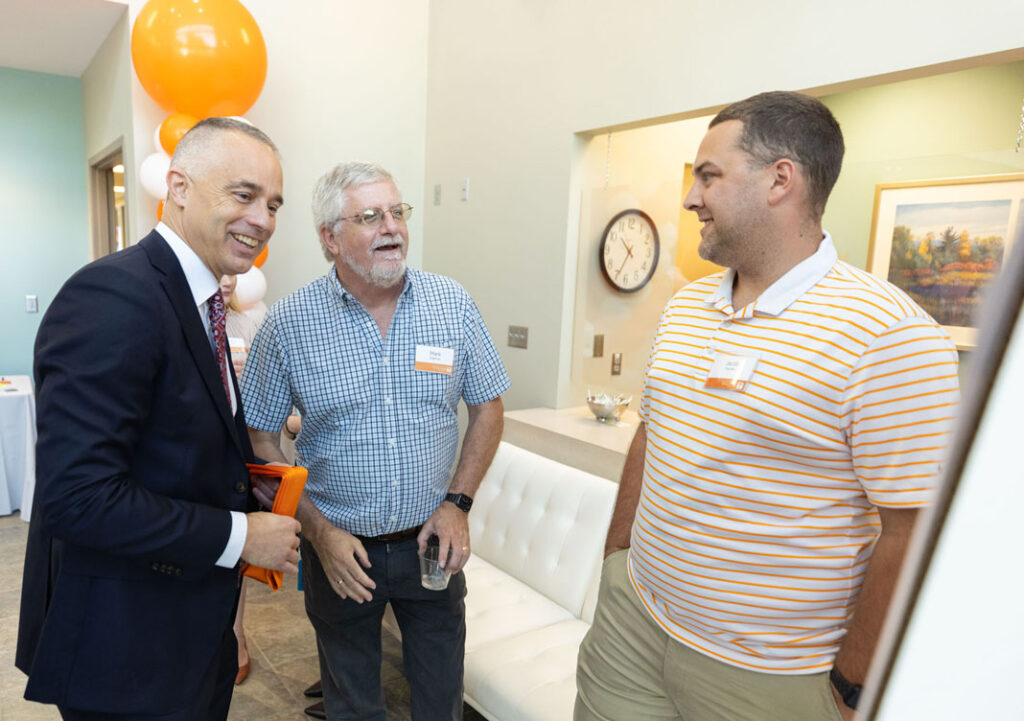
Photos courtesy of Steven Bridges/the University of Tennessee, Knoxville.